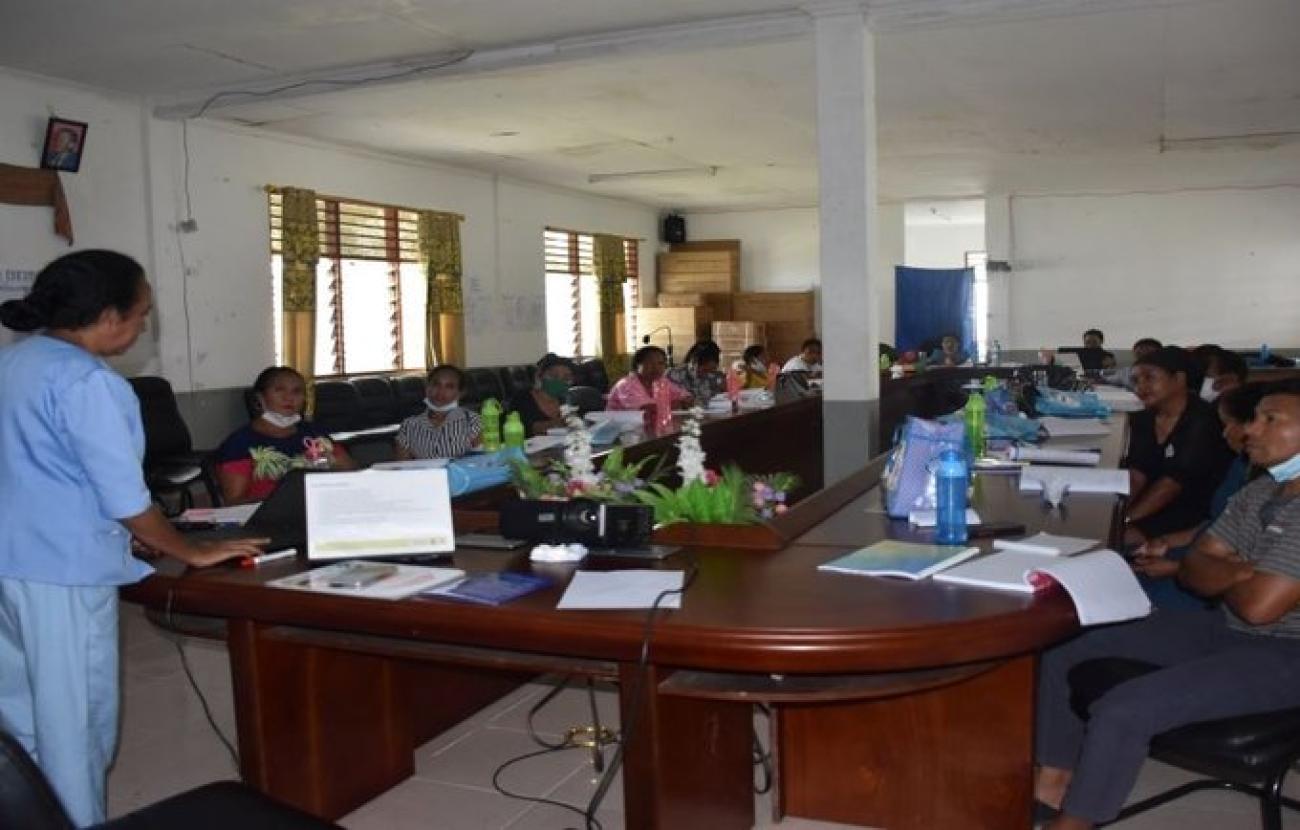Why family planning training is critical in changing perceptions and improving lives for families in Timor-Leste

Fifteen trainees (including 9 midwives and 6 doctors) participated in the course supported by UNFPA.
Dili, December 30, 2021 – Though Timor-Leste has made significant efforts to promote use of modern family planning methods, lack of information and misconceptions on benefits of family planning is still a challenge for most families – especially in municipalities.
Yet, access to safe, voluntary family planning is a human right and a critical factor in promoting gender equality and women empowerment.
According to Demographic Health Survey (DHS-2016), the use of any method of family planning in Timor-Leste increased slightly from 22% in 2009-10 to 26% in 2016 while use of modern methods of family planning increased slightly from 21% to 24% over the same time period -- highlighting the need for increased education.
A ten-day comprehensive family planning training was held in Aileu municipality in November to raise ability and skills for trainers in use of family planning methods for example; use of pills, injections, intrauterine device (IUD), natural and artificial family
planning.
Fifteen trainees (including 9 midwives and 6 doctors) participated in the course supported by UNFPA.
Speaking at the first training on family planning to be held in Aileu municipality, Nelinha dos Santos Soares, a public health and midwifery trainer observes that trainers must address existing social norms and perceptions regarding family planning and offer right information on benefits of family planning to improve livelihoods.
“Lack of right information on family planning remains the biggest challenge in improving use of modern family planning methods and their benefits in Timor-Leste.
“We are making progress in educating communities on family planning methods. Majority of Timorese are Catholics and accept and have positive perceptions on family planning. We now have community health workers who are well informed about benefits of family planning for better future for families. I have benefitted from family planning and gender-based violence trainings coordinated by UNFPA,” said Ms. Nelinha dos Santos Soares.
The course was conducted by the National Health Institute (INS) in collaboration with the Ministry of Health and UNFPA -- from November 8 – 17 -- and targeted healthcare workers from Aileu municipality.
Dr. Serena Mendonça, a first-time participant of the training observed that Aileu has experienced an increase in number of maternal deaths linked to lack of family planning.
“By participating in family planning training, I will be able to help community members and clients by giving the right information on family planning.
“Implementation of family planning is not to stop having children but to have better families through spacing and improved livelihoods,” said Dr. Mendonça.
While emphasizing the need for continuous trainings on family planning to learn new methods and trends in family planning, Mr. Julio dos Santos, Director of Health in Aileu municipality said: “We thank UNFPA and other partners for their continuous support to equip health centers with necessary equipment and training.”
“Family planning trainings need to be sustained to reach more health workers continuously. Trainees also need equipment related to family planning training to support families better,” said Mr. Julio dos Santos.
UNFPA has supported Family Planning training for more than a decade in Timor-Leste to build capacity of trainers including supply of equipment like IUDs and implants, module training and verification lists among others.
From 2017 to 2021, UNFPA has supported the training of 204 healthcare workers (including 154 midwives and 50 doctors -- 23 females and 27 males).
In 2021 alone, 4 batches of trainings were held in Ermera, Manatuto, Aileu and Dili municipalities with a total of 58 trainees.






